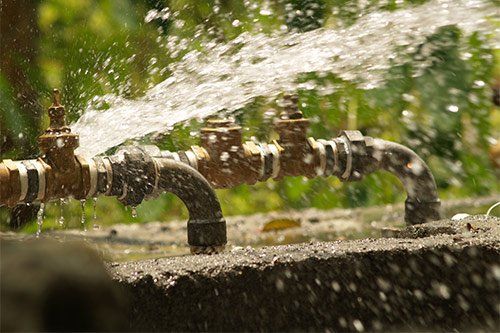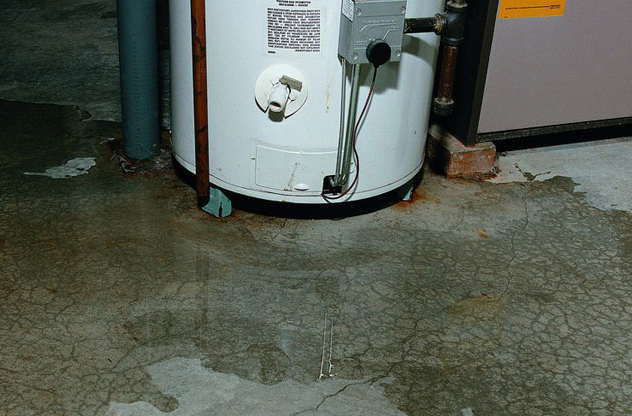The 5 Frequent Water Leak Sources
The 5 Frequent Water Leak Sources
Blog Article
What are your thoughts regarding Where to Find Water Leaks?

"Beware of little expenditures. A little leakage will certainly sink a great ship." - Benjamin Franklin.
He could not have been much more best due to the fact that water leaks in our residences result in a waste of sources, increasing our water bills. Although this boost may seem minimal at first, it can bring about significant expenditures that can break your financial institution. In addition to an increase in bills, water leakages also trigger undesirable natural development, structural damage, as well as even electric threats.
If you have a water leak isn't always simple due to being not able to see most of the pipework in your house, figuring out. If you have had a boost in your water bills recently, noticed water stains on wall surfaces and ceilings, smelt lousy odor, etc. You may wish to consider requesting plumbing solutions to get it had a look at.
There are a number of causes of water leakages, as well as we have compiled the usual reasons below. Inspect to see if you have actually had associated problems in your house lately.
Deteriorated pipeline joints
Pipeline joints are the parts of our plumbing system where the pipelines attach. It is important to keep in mind that also though pipes are developed to stand up to stress and last for a while, they weren't created to last for life; consequently, they would deteriorate over time. An usual sign of damaged pipeline joints is excessive noise from taps.
High water stress
You saw your house water stress is more than normal yet then, why should you care? It's out of your control.
It would be best if you cared because your average water pressure ought to be 60 Psi (per square inch) as well as although your residence's plumbing system is designed to stand up to 80 Psi. A rise in water stress can place a strain on your home pipes and also lead to splits, or even worse, ruptured pipes. Obtain in touch with an expert about managing it if you ever observe that your home water stress is higher than usual.
Rust
As your pipework grows older, it gets weak and extra prone to corrosion after the frequent passage of water via them, which can eat away at pipelines and also cause fractures. A noticeable indication of deterioration in your home plumbing system is discoloration as well as although this could be hard to find because of a lot of pipelines hidden away. Once they are old to guarantee a sound plumbing system, we suggest doing a frequent appointment every couple of years and transform pipes
Blocked drains pipes
Food fragments, dust, and also oil can create clogged up drains pipes and block the passage of water in and out of your sink. If undealt with, increased pressure within the rain gutters can end and also create an overflow up fracturing or rupturing pipelines. To avoid blocked drains pipes in your home, we advise you to stay clear of putting particles down the drain and also regular cleansing of sinks.
Busted seals
One more source of water leaks in homes is damaged seals of home devices that use water, e.g., a dish washer. When such appliances are set up, seals are mounted around water adapters for simple flow of water through the equipment. Hence, a broken seal can trigger leak of water when in use.
With little or no expertise of plumbing, recognizing your home's plumbing system enough to fix some of these issues (without repercussion) can be a problem. Get in touch with plumbing specialists in Pittsburgh, Divine Superintendence, Rochester, and also environ today, as well as they'll make those issues vanish.
He couldn't have been more ideal since water leaks in our residences result in a waste of sources, boosting our water bills. If you have had a rise in your water costs recently, discovered water stains on ceilings as well as wall surfaces, smelt poor odor, and so on. A boost in water stress can put a pressure on your home pipelines and lead to splits, or worse, burst pipes. An additional cause of water leaks in homes is damaged seals of residence appliances that utilize water, e.g., a dish washer. When such devices are installed, seals are installed around water ports for simple flow of water via the equipment.
5 TIPS IN DETECTING A WATER LEAK IN YOUR HOUSE
Water leaks can be hard to find in your home, yet they can be so common. We rely on water every day in our home, which is why a leak can cause big problems. By detecting them early, you can save money and further damage, getting the problem fixed as soon as possible. Here are 5 tips to help you detect a water leak in your home, so you can contact a plumber straight away and get the issue sorted.
Check your water meter
Many people underestimate the value of the water meter in their home. It can be one of the best ways to tell if you have a leak early on, so you can get on top of it before issues start arising. Start by turning off all the water in your home: taps, washing machine, dishwasher, etc. Now take a look at the meter – if it’s still changing with everything turned off, it’s likely you have a fast-flowing leak that you need to get on top of straight away. If nothing changes, then leave your meter for an hour or two and come back to it. Did it change in this time? It’s likely you have a slower leak, which isn’t as urgent but still handy to get fixed so it doesn’t become a bigger problem.
Keep an eye on your bill
Another good way to detect a leak in your home is by keeping an eye on your water bill. It helps if you have a past bill from the same period of time. You can compare like for like and determine whether your water usage has increased significantly. If it has, there may be a leak in your system that you haven’t picked up before. A professional plumber can check through all of your pipes and determine where it is coming from.
Look for damage
If you have a leak inside your home, you will notice damage over time. Take a look at your showers and bathtubs and note whether any of the tiles surrounding the area seem to be discoloured or damaged in any way. There may be water stains, mould or peeling material that has resulted from a build up of moisture over time. Make sure you take a look under sinks at the back of cupboards that don’t get accessed regularly. This is where damage can go unnoticed and build up over periods of time.

As a devoted person who reads on Reasons for Water Heater Leaks, I thought sharing that chunk was beneficial. If you appreciated our article please be sure to share it. Kudos for your time. Come back soon.
Get the best, ring us! Report this page